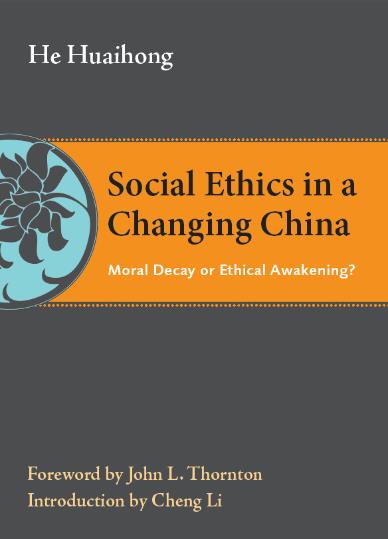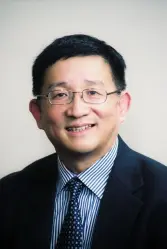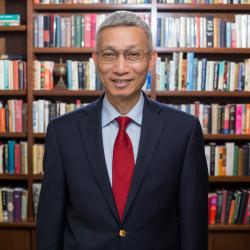

9:30 am EST - 12:30 pm EST
Past Event
9:30 am - 12:30 pm EST
1775 Massachusetts Avenue NW
Washington, DC
20036
 During the past half-century, the People’s Republic of China (PRC) has experienced several incredible human-made dramas: Red Guard fanaticism, a loss of education for a whole generation during the Cultural Revolution, the Tiananmen tragedy, an economic miracle and the subsequent rise of money worship, rampant official corruption, and the ongoing and painstaking search for modern virtues in an ancient civilization. What, then, is the current state of ethics and morality in China and what has caused the crisis of trust in Chinese society? Many argue that China must reconstruct a forward-looking and globally-oriented moral order from its broken traditional ethical code in order to secure China’s future and the implications of China’s rise on the world stage.
During the past half-century, the People’s Republic of China (PRC) has experienced several incredible human-made dramas: Red Guard fanaticism, a loss of education for a whole generation during the Cultural Revolution, the Tiananmen tragedy, an economic miracle and the subsequent rise of money worship, rampant official corruption, and the ongoing and painstaking search for modern virtues in an ancient civilization. What, then, is the current state of ethics and morality in China and what has caused the crisis of trust in Chinese society? Many argue that China must reconstruct a forward-looking and globally-oriented moral order from its broken traditional ethical code in order to secure China’s future and the implications of China’s rise on the world stage.
On November 6th, the John L. Thornton China Center at the Brookings Institution hosted He Huaihong for keynote remarks and discussion of his new book: “Social Ethics in a Changing China: Moral Decay or Ethical Awakening?” (Brookings Institution Press, 2015). Following this discussion, a panel of renowned Chinese-American experts addressed concerns about China’s perceived moral decay.
![]() Follow @BrookingsChina to join the conversation.
Follow @BrookingsChina to join the conversation.
9:30 am


11:00 am


Elaine Kamarck
March 3, 2026

Belinda Archibong
March 3, 2026

Jon Valant, Lindsay Weixler
March 3, 2026